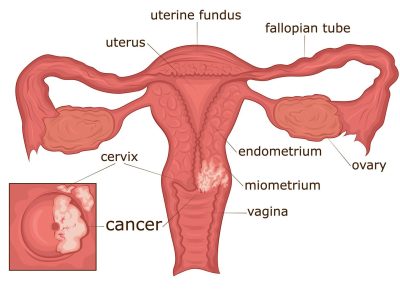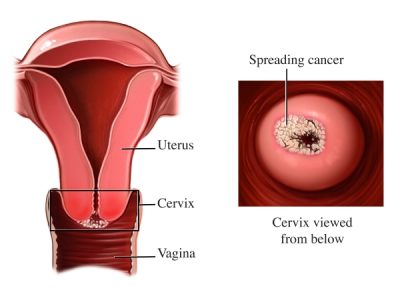-
Mon -Sun: 10.00Am - 2.00Pm
& 05.00Pm - 9.00 Pm
Taking care of you, from the inside out
Taking care of you, from the inside out
Home || Our Services || Cervical Cancer
One kind of cancer that starts in the cells of the cervix—the lower portion of the uterus that joins the vagina—is called cervical cancer. This ailment predominantly impacts females and is frequently linked to the human papillomavirus (HPV). Although cervical cancer is a serious health risk, it can be effectively controlled with education, screenings, and prompt medical attention.
Cervical cancer may not show any signs when it first appears. But when the illness worsens, women may get strange vaginal discharge, pelvic pain, abnormal vaginal bleeding, and pain during sexual activity. Frequent gynecological exams and screenings are critical for the early detection of abnormalities.


When identified early through regular screenings, cervical cancer is a very treatable and preventable disorder. By removing cells from the cervix for analysis, Pap tests can detect precancerous alterations and enable treatment to occur before cancer manifests. Furthermore, immunizations against HPV offer strong defense against the virus and lower the risk of cervical cancer.
Choose the best for yourself. Book your appointment today!

Early detection is often through Pap smears or HPV tests during routine gynecological exams. These screenings can identify abnormal changes in the cervical cells before they develop into cancer, allowing for timely intervention.
Treatment options may include surgery, radiation therapy, and chemotherapy. The choice of treatment depends on the stage of cancer, the patient's overall health, and other individual factors.
Yes, cervical cancer can be prevented through vaccination against HPV, practicing safe sex, and undergoing regular screenings. The HPV vaccine is highly effective in preventing infections with the most common cancercausing HPV types.
Early stages of cervical cancer may not cause symptoms. As the cancer progresses, symptoms may include abnormal vaginal bleeding, pelvic pain, pain during intercourse, and unusual vaginal discharge. Regular checkups are crucial for early detection.
While cervical cancer is not typically considered hereditary, a family history of certain genetic conditions may increase the risk. However, the primary risk factor remains persistent HPV infection.